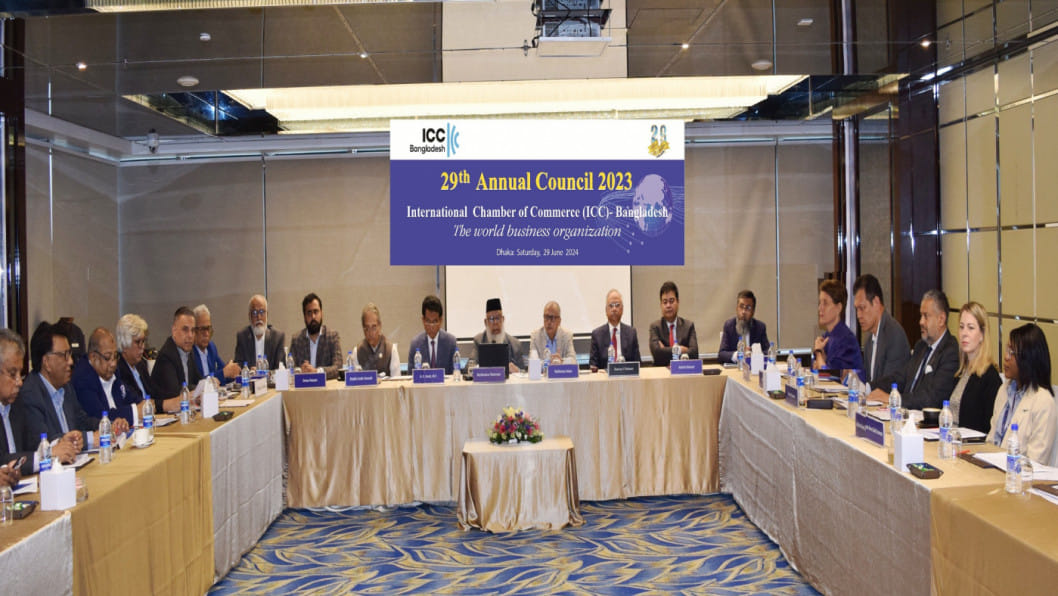High inflation, NPLs disrupting post-pandemic recovery: ICCB

The economy of Bangladesh has rebounded from the Covid-19 pandemic, but high inflation, a balance of payments deficit, financial sector vulnerabilities, and global economic uncertainty continue to hamper recovery, said Mahbubur Rahman, president of the International Chamber of Commerce Bangladesh (ICCB).
He cited the World Bank's biannual update, which also forecasts Bangladesh's real gross domestic product (GDP) growth to remain subdued at 5.6 percent in the FY24, a decline from the 6.6 percent average annual growth rate in the decade before the pandemic.
He made the remarks at the ICCB's 29th annual council in Dhaka yesterday, according to a press release.
Rahman said that the economic crisis has been exacerbated by the Russia-Ukraine war, which began in February 2022 and led to escalated global commodity prices.
The war also caused the depletion of foreign currency reserves due to higher import bills, forcing the Bangladesh Bank to impose import restrictions.
In its biannual update, the World Bank said Bangladesh's economy has rebounded from the pandemic, but high inflation, a balance of payments deficit, financial sector vulnerabilities, and global economic uncertainties continue to hamper recovery.
Bangladesh currently faces several key challenges in its quest to become a middle-income country by 2026, including designing policies to boost trade competitiveness, broadening participation in free trade agreements, and creating an efficient resolution framework for non-performing loans to maintain financial stability and revive private sector credit, members of the ICCB executive board mentioned during the council meeting.
They also said urgent monetary reforms and a single exchange rate regime are essential to improving foreign exchange reserves and curbing inflation.
Bangladesh must focus on governance, legal predictability, and a stable legal environment to attract foreign investment and ensure sustained growth, it added.
Despite macroeconomic challenges, ICCB believed the economic indicators suggested a positive outlook for 2024, adding that diversifying the economy, investing in physical and digital infrastructure, and focusing on human capital development is crucial.
With the right strategies, Bangladesh can become a prominent player in Asia. The resilience of the people, along with a committed government, positions the country for positive outcomes, said ICCB.
Navigating external economic policies amid a complex global order will be challenging for Bangladesh in cases such as maintaining balanced economic relations with countries like China and the US.
The board highlighted that geopolitical tensions pose significant risks to the global economy. Wars in Eastern Europe and the Middle East threaten the world's food and energy supply. An escalation in the Middle East could disrupt energy markets, with the region accounting for nearly 30 percent of global oil production.
The council approved the audited accounts for 2023 and appointed an auditor for 2024. It also announced the new executive board of ICCB for a two-year term from April 2024.
Among others, Gwyn Lewis, UN resident coordinator, Edimon Ginting, country director of the Asian Development Bank, and Farook Doomun, acting in-charge of UNICEF Bangladesh, were also present at the council meeting.

 For all latest news, follow The Daily Star's Google News channel.
For all latest news, follow The Daily Star's Google News channel. 



Comments